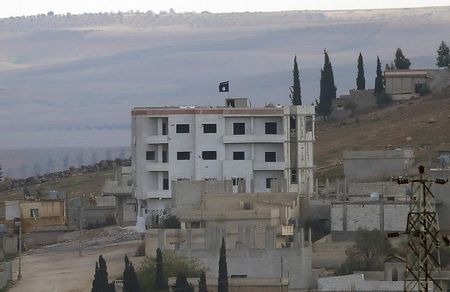BAGHDAD (Reuters) - Islamic State militants have executed 36 more members of an Iraqi tribe that had resisted the Sunni militant group's advances in western Anbar Province for weeks, a member of the tribe said on Monday.
"They were shot dead in Ramadi," said Hamdan al-Nimrawi of the Albu Nimr tribe, which had already lost 322 people last week in some of the worst bloodshed since the Sunni militants swept through northern Iraq last June.
The killing spree started last week when Islamic State militants began hunting down and executing large numbers of tribesmen and dumping them in mass graves or on roadsides after capturing their main village in Anbar.
The Albu Nimr tribe, which is also Sunni, had put up fierce resistance against Islamic State for weeks but finally ran low on ammunition, food and fuel last week as militant fighters closed in on their village Zauiyat Albu Nimr.
Iraq's Human Rights Ministry said on Sunday Islamic State militants had already killed 322 members of the tribe, including dozens of women and children whose bodies were dumped in a well.
One leader of the tribe, Sheikh Naeem al-Ga'oud, told Reuters last week he had repeatedly asked the Shi'ite-led central government and army to provide his men with arms but no action was taken.
The fall of the village dampened the Baghdad government's hopes the Sunni tribesmen of Anbar, who once helped U.S. Marines defeat al Qaeda, would become a formidable force again and help the army take on Iraq's new, far more effective enemy.
Islamic State already controls most of the vast desert province running from the Syrian border to the western outskirts of Baghdad. It includes towns in the Euphrates River valley dominated by Sunni tribes.
If the province falls, it could give Islamic State a better chance to make good on its threat to march on Baghdad.

In Anbar, the militants are now encircling a large air base and the vital Haditha dam on the Euphrates. Fighters control towns from the Syrian border to parts of provincial capital Ramadi and into the lush irrigated areas near Baghdad.
(Writing by Michael Georgy; Editing by Tom Heneghan)
